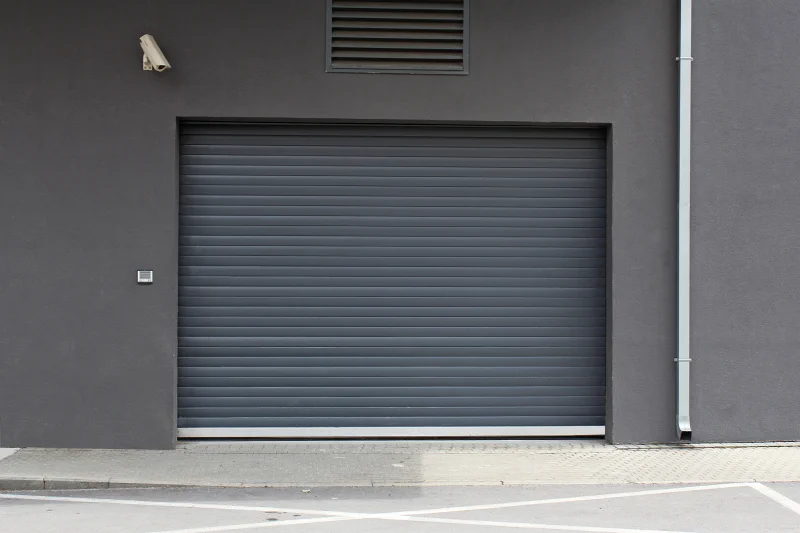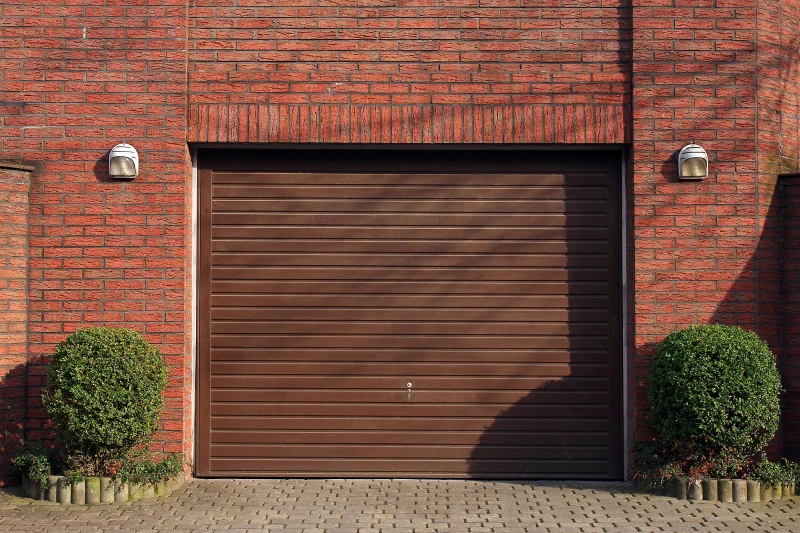Roll Up Doors : Choosing the Best roll-up Garage Door for Residential or Comercial storage

When it comes to securing your property and optimizing space, roll up doors offer a versatile and efficient solution. In this comprehensive guide, we’ll delve into everything you need to know about roll-up doors, from their benefits and types to installation tips and maintenance advice. Whether you’re considering a roll-up garage door for residential or commercial use, this article will provide valuable insights to help you make an informed decision.
Roll-up doors are an essential feature for many residential and commercial properties, offering convenience, security, and durability. In this comprehensive guide, we will explore the various aspects of roll-up doors, including their benefits, types, and installation tips. Whether you're considering a roll-up door for your 1 car garage, storage unit, or warehouse, this article will provide valuable insights to help you make an informed decision.
Roll-up doors, also known as roll-up garage doors, are popular for their space-saving design and robust construction. Available in various sizes and materials, such as steel, they cater to both residential and commercial needs. Whether you need a 12 x 12 door for a storage unit or a heavy-duty commercial door for a warehouse, roll-up doors offer a versatile solution.
By reading this guide, you'll gain a thorough understanding of the different types of roll-up doors, including the latest models like the Model 2500. We will also discuss the specific features and benefits of roll-up doors for residential and commercial use, ensuring you choose the right door for your specific requirements.
What is a Roll Up Door?
Roll up curtain doors, also known as roll-up doors, are a type of door constructed from many horizontal slats hinged together. These doors roll up into a coil above the door opening, providing a space-saving and durable solution for various applications. Roll-up doors are commonly used in 2 car garages, warehouses, self-storage units, and commercial buildings due to their robust construction and efficient operation.
How Do Residential Roll-Up Doors Work?
Overhead doors operate by rolling the slats into a coil above the door opening, either manually or with the help of an electric opener. This mechanism allows for smooth and effortless operation, making them ideal for both residential and commercial use.
Why Choose a Roll Up Door setup for 1 car garage?
Roll up sheet doors are preferred for their space-saving design, durability, and security features. Unlike traditional doors, they do not swing outwards or inwards, making them perfect for areas with limited clearance.
Benefits of Roll Up Garage Doors

Space Efficiency
One of the most certain advantages of roll up garage doors is their space efficiency. Since the door rolls up into a compact coil, it does not require additional space for opening or closing, making it ideal for tight spaces.
Durability and Strength for 2 car garage
Roll up doors are typically made from materials like steel or aluminum sheets, providing excellent durability and strength. This makes them resistant to harsh weather conditions, impacts, and potential break-ins, ensuring long-lasting protection for your property.
Low Maintenance for overhead door
Roll up garage doors require minimal maintenance compared to traditional doors. With fewer moving parts and a robust construction, they are less prone to wear and tear, reducing the need for frequent repairs and maintenance.
Types of Roll Up Doors: Steel, Aluminum, and More
Steel Roll Up Doors
Steel courtain roll up doors are known for their strength and durability. They are commonly used in commercial and industrial settings due to their ability to withstand heavy use and harsh environments. Steel roll up doors are also available in various gauges, allowing you to choose the level of thickness and durability you need.
Aluminum Roll Up Doors
Aluminum roll up doors are lightweight and resistant to rust and corrosion, making them ideal for coastal areas or environments with high humidity. While they may not be as strong as steel, aluminum doors offer a good balance of durability and ease of use.
Other Materials
In addition to steel and aluminum, roll up doors can be made from other materials like vinyl and fiberglass. These materials are often used in residential settings where the demands on the door are not as high as in commercial applications.
How to Choose the Right Roll Up Door for Your Garage
Consider Your Needs
When setup for new garage door, consider the specific needs of your space. For instance, if you require a door for a commercial setting, you might prioritize durability and strength, whereas for residential use, aesthetics and ease of operation might be more important.
Check the Door Size
Ensuring the correct door size is crucial for proper installation and operation. Measure the width and height of the door opening accurately and consider any additional clearance required for the roll-up mechanism.
Think About Insulation
If you plan to use the garage for activities beyond parking, such as a workshop or storage for temperature-sensitive items, consider an insulated roll up door. Insulation helps maintain a stable temperature inside the garage, improving energy efficiency and comfort.
Understanding Roll Up Door Sizes and Measurements
Standard Sizes
Roll up doors come in various standard sizes to fit most openings. Common residential sizes include 8x7 feet for a single-car garage and 16x7 feet for a double-car garage. Commercial sizes vary more widely depending on the specific application.
Custom Sizes
For unique openings or specific needs, custom-sized roll up doors are available. Custom doors ensure a perfect fit and optimal performance, whether you have an oversized garage or an unusual opening shape.
Measuring Your Space
Accurate measurements are crucial for selecting the right roll up door. Measure the width, height, and depth of the opening, as well as the clearance above the door and on the sides. This will help you determine the appropriate door size and ensure a smooth installation.
Insulation Options for Roll Up Garage Doors
Why Insulate Your Garage Door?
Insulating your roll up garage door offers several benefits, including improved energy efficiency, enhanced comfort, and noise reduction. Insulation helps maintain a consistent temperature inside the garage, reducing the strain on heating and cooling systems.
Types of Insulation
There are different types of insulation available for roll up garage doors, including foam, reflective, and fiberglass insulation. Foam insulation provides excellent thermal resistance, while reflective insulation reflects heat away from the garage, keeping it cooler in the summer.
Installing Insulated Doors
Insulated roll up doors can be purchased pre-insulated or retrofitted with insulation kits. Pre-insulated doors are manufactured with insulation built into the slats, offering superior thermal performance and a clean appearance.
Security Features: Locks and Seals
Importance of Security
Security is a critical consideration for both residential and commercial roll up doors. Effective locks and seals prevent unauthorized access and protect your property from potential break-ins and environmental elements.
Types of Locks
Roll up doors can be equipped with various lock types, including slide bolts, padlocks, and electronic locks. Slide bolts are simple and effective, while electronic locks offer advanced security features like keyless entry and remote control.
Sealing the Door
Seals are essential for keeping out dust, dirt, moisture, and pests. Bottom seals, side seals, and top seals can be added to roll up doors to provide a tight barrier against external elements, enhancing security and preserving the door’s condition.
Installation Tips for DIY Enthusiasts
Preparing for Installation
Proper preparation is key to a successful DIY roll up door installation. Gather all necessary tools and materials, and ensure the installation area is clean and free of obstructions. Carefully read the manufacturer’s instructions and follow all safety guidelines.
Step-by-Step Installation
- Assemble the Tracks and Roll: Begin by assembling the tracks and attaching the roll mechanism to the top of the door frame.
- Mount the Door: Carefully lift the door and mount it onto the tracks, ensuring it is aligned and level.
- Secure the Hardware: Attach the hardware, including brackets, springs, and fasteners, according to the manufacturer’s instructions.
- Test the Door: Once installed, test the door’s operation to ensure it rolls up and down smoothly. Make any necessary adjustments to ensure proper alignment and function.
Safety Considerations
Always prioritize safety when installing a roll up door. Wear appropriate protective gear, and use caution when handling heavy components. If you are unsure about any part of the installation process, consider hiring a professional for assistance.
Maintaining Your Roll Up Door: Best Practices
Regular Inspections
Perform regular inspections of your roll up door to identify any signs of wear or damage. Check the slats, tracks, seals, and hardware for any issues that could affect the door’s performance.
Lubrication and Cleaning
Lubricate the moving parts of the door, such as the tracks, rollers, and hinges, to ensure smooth operation. Clean the door regularly to remove dirt, debris, and buildup that could cause damage over time.
Addressing Repairs
Promptly address any repairs needed to keep your roll up door in optimal condition. This includes replacing damaged slats, tightening loose hardware, and fixing any alignment issues. Regular maintenance and timely repairs will extend the lifespan of your door and ensure it continues to operate smoothly.
Commercial Roll Up Doors: What You Need to Know
Heavy Duty Options
Commercial roll up doors are designed to withstand the rigors of heavy use and harsh environments. Heavy duty roll up doors are typically made from thicker steel or aluminum and feature reinforced construction for added durability.
Custom Features
Commercial roll up doors can be customized with various features to meet specific needs. This includes insulation for energy efficiency, advanced locking mechanisms for security, and high lift tracks for better clearance.
Compliance and Safety
Ensure that your commercial roll up door complies with local building codes and safety regulations. This may include features like emergency release mechanisms, fire ratings, and safety sensors to prevent accidents.
Installation and Maintenance
Professional installation is recommended for commercial roll up doors due to their complexity and size. Regular maintenance is also essential to keep the door functioning properly and to prevent downtime in your business operations.
Conclusion: Key Points to Remember
- Versatility and Efficiency: Roll-up doors are a perfect solution for both residential and commercial applications, offering space-saving convenience and ease of use. Explore our New Garage Construction services to find the ideal roll-up door for your needs.
- Durability and Security: Constructed from robust materials like steel, roll-up garage doors provide long-lasting protection against harsh weather and potential break-ins. Learn more about our Heavy Duty Commercial options.
- Customization and Sizes: Whether you need a 12 x 12 size for a storage unit or a wide door for a commercial facility, we offer customized solutions to fit your requirements. Visit our pages for specific sizes such as 1 Car Garage, 2 Car Garage, and Custom Size Garage.
- Advanced Features: Modern roll-up doors can include advanced features like jackshaft openers, galvanized steel construction, and secure latches to enhance functionality and security. Discover our Liftmaster Opener options for effortless operation.
- Aesthetic and Functional Designs: From rolling sheets to stylish panels, our roll-up garage doors blend aesthetic appeal with functional design. Check out our Gallery to see examples of our work.
For more information or to start your garage project, contact Prairie Land Garages Inc. at (773) 679-7833 or via email at info@prairielandgarages.com. Visit our About Us page to learn more about our commitment to quality and customer satisfaction.
